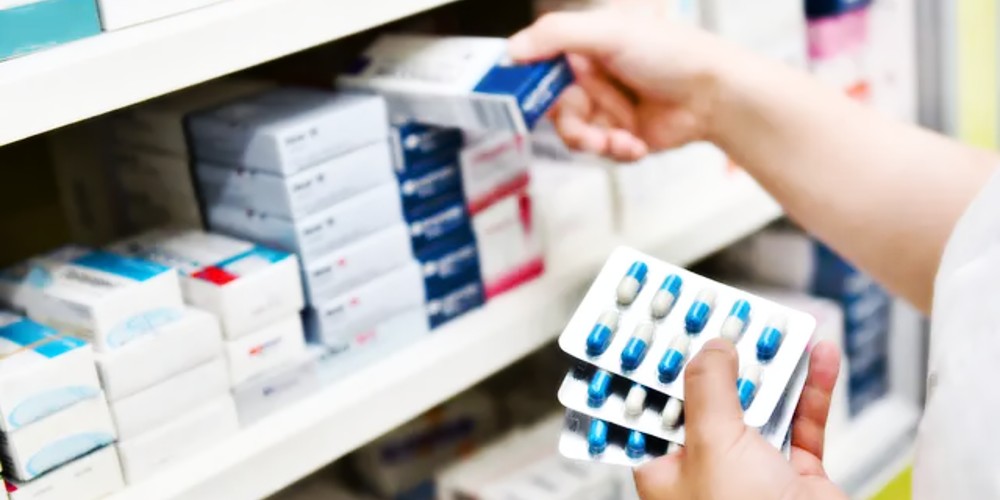(The Epoch Times)—A trip to the pharmacy has become a gamble for patients across America as shelves are short on critical medications.
Nearly 96 percent of pharmacy technicians surveyed by the Pharmacy Technician Certification Board reported shortages of essential drugs—from chemotherapy and attention-deficit/hyperactivity disorder meds to much-needed anesthetics and popular diabetes and weight loss drugs, including Mounjaro, Ozempic, and Wegovy.
“Drug shortages are affecting many areas of pharmacy practice, such as retail, compounding and hospitals,” Anthony Longo, a doctor of pharmacy and director of pharmacy at Northwell Long Island Jewish Forest Hills in Queens, NY, told The Epoch Times.
The crisis highlights the need for urgent policy solutions to ensure supply of essential medications.
Patients Often Leave Without Needed Medicine
The impact of drug shortages, especially for cancer medications, can be devastating for patients. When unable to obtain needed medicines, patients may rely on less effective alternative treatments, resulting in higher healthcare costs, longer hospitalizations, and increased risk of adverse reactions.
To address shortage issues, 90 percent of surveyed technicians said they offer substitute drugs when available. However, almost half the time (45 percent), patients still leave without their needed medication.
When no equivalent drug exists, nearly one-third of technicians turn to in-house compounding, while just 6 percent refer to external pharmacies. In-house compounding of drugs refers to the practice of preparing customized medications within a healthcare facility, such as a hospital, pharmacy, or medical clinic, rather than obtaining commercially available medications.
Some report collaborating with other pharmacy teams to get the needed meds. “We run weekly shortage calls as a system to address shortages,” one respondent said in a statement. Another said they prioritize reacting swiftly to prevent lapses in care. Some have gone as far as contacting drug representatives to locate medications for patients.
“It’s no surprise that pharmacy technicians are actively working on solutions to mitigate drug shortages for their patients,” PTCB CEO William Schimmel said in a statement. “I’m impressed by the spirit of collaboration, even outside of the pharmacy where they work.”
Shortages Are Already Having Critical Impact on Patient Care
This pharmacy technician survey echoes the findings of an American Society of Health System Pharmacists (ASHP) survey conducted in the summer. Drug shortages severely impact patients and healthcare staff,” Michael Ganio, who has a doctor of pharmacy degree and is the senior director of pharmacy practice and quality at ASHP, said.
These shortages also overburden pharmacy technicians already facing staff shortages. “This is an unsustainable reality for the entire healthcare system,” he added.
In July, the ASHP released survey results on the current drug shortage crisis. Conducted from June 23 to July 14, the online survey gathered responses from 1,123 participants. The ASHP reported over 300 active shortages at end of Q2 2023—”the highest in nearly a decade and close to the all-time high of 320 shortages,” according to the survey.
In July, too, nearly all respondents confirmed experiencing shortages.
Additionally, 32 percent called them “critically impactful,” which was defined as rationing, delaying, or canceling treatments or procedures. Of that group, nearly 60 percent reported chemotherapy drug shortages as most detrimental.
‘Extreme’ Competition and Other Factors Causing Shortages
The ASHP recommends policy solutions targeting key drivers of generic drug shortages—quality control, supply chain disruptions, and extreme price competition.
Low profit margins for generic drugs are a major factor in shortages. Intense competition has decreased profitability of certain generics, disincentivizing investment from manufacturers, according to the ASHP. Some shift capacity to more profitable drugs rather than fix issues in producing less profitable generics. This has caused certain companies to cease making these drugs altogether.
“This issue requires quick action from Congress to address the underlying causes of shortages and ensure patients have the medications they need,” ASHP Chief Executive Officer Paul W. Abramowitz, said in a statement.
What Would You Do If Pharmacies Couldn’t Provide You With Crucial Medications or Antibiotics?
The medication supply chain from China and India is more fragile than ever since Covid. The US is not equipped to handle our pharmaceutical needs. We’ve already seen shortages with antibiotics and other medications in recent months and pharmaceutical challenges are becoming more frequent today.
Our partners at Jase Medical offer a simple solution for Americans to be prepared in case things go south. Their “Jase Case” gives Americans emergency antibiotics they can store away while their “Jase Daily” offers a wide array of prescription drugs to treat the ailments most common to Americans.
They do this through a process that embraces medical freedom. Their secure online form allows board-certified physicians to prescribe the needed drugs. They are then delivered directly to the customer from their pharmacy network. The physicians are available to answer treatment related questions.



Big PHARMA’s plan —— everything is on track!! Equity medicine and equity doctors —getting worse every decade beginning at least several decades ago!?
And yes, it is rather chilling!